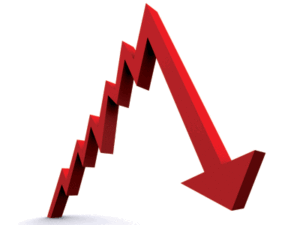The Market Is Foundering. What to Do?

By some metrics, this has been the worst year in the stock market since the Great Depression.
The larger indexes are down around 20%, and many tech stocks have lost 50% to 80% of their start-of-the year values.
What to do?
You can sell your stocks, take the loss, and put your money in cash. And then try to figure out when to get back into equities. The problem with cash, of course, is that it is currently losing 0.75% of its value every month – and that will increase if inflation pressures continue.
You could put your money in gold. The value of gold (and most other precious metals) historically keeps pace with inflation. In fact, gold is trading today at about $1,840 an ounce, which is about 8% higher than it was in January.
If you already have gold and enough cash to cover emergencies, you might want to look at what sort of stocks you are holding. If your portfolio includes what I call Legacy stocks (e.g., Nestles, Coca Cola, IBM), you can expect that their prices will, like gold, keep up with inflation. That’s because companies like these have the ability to gradually increase their prices as their costs go up.
If you have lots of tech stocks, you might want to ask yourself if you think the companies they represent will still be around if we enter into a recession. Most of the tech stocks I own (Apple, Amazon, Google, Meta) are big enough to recover from their currently discounted prices. So I may be buying more of them. If the tech stocks you own are smaller and less certain to survive a recession, you may want to think about dumping them.
If your portfolio is made up of, say, 10% smaller tech stocks, 50% to 60% Legacy stocks, and 30% to 40% of those world-dominating tech companies, you might want to consider doing what I’m doing: absolutely nothing.
In any case, keep these two facts in mind:
* About once a decade, the stock market experiences a downturn of 20% to 30%. That’s what we are seeing now.
* Since the stock market was created over 100 years ago, its overall value has been a one-way ride. Up about 8% to 10% a year, depending on how you measure it.
 MarkFord
MarkFord

